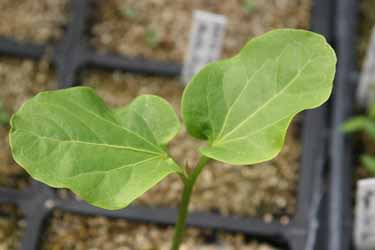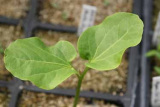- Store
- >
- Medicinal Plants
- >
- 5 'Psychic Nut' tree seeds, Jatropha curcas, India
5 'Psychic Nut' tree seeds, Jatropha curcas, India
Uses: Medicinal/Poisonous!
Duration: Perennial (hardy in zones 11+)
When to Sow: Anytime
Ease of Germination: Easy
(Termite plant; Babantsi; Bio-diesel plant)
Impressive-looking small tree cultivated as an ornamental throughout Africa and Asia.
Seeds and leaves have a strong purgative action and poisonous if used internally. Used externally for skin parasites, venereal disease, herpes, and as a dressing for wounds.
In India a renewable bio-fuel is made from the seeds.
A drought-tolerant plant, Physic nut (Jatropha curcas), AKA Jatropha, Purging Nut, and Barbados Nut, is a deciduous small tree or shrub that can be found in tropical America. It has a thin crown, milky sap, small and yellowish-green flowers, and yellow capsule fruit.
- It should be noted that all plant parts of J. curcas are poisonous, thus extreme caution should be observed when using the plant for any internal use.
The latex has antibiotic properties against certain bacteria and coagulating effects on blood plasma. Bark juice is used for treating malarial fevers and reducing swellings caused by inflammation. It can be applied externally as treatment for burns, scabies, eczema, or ringworm. Bark paste is applied to gums to cure gum sore and swellings. In Nepal, thin twigs are used as toothbrushes to treat toothache, and bleeding and swollen gums. The leaves, on the other hand, can be used to treat a wide range of medicinal conditions such as coughs, convulsions, jaundice, fevers, rheumatic pains, guinea worm sores, wounds and cuts, sores, etc. The seeds can be used as a purgative but only in small doses. Oil obtained from the seeds are used in the treatment of skin diseases and rheumatic pains. It also stimulates hair growth. The root bark is used for sores, dysentery, and jaundice. Edible parts of J. curcas are the tender young shoots, young leaves, and seeds. The ashes from the roots and branches are used as cooking salt. The plant is also planted for soil-erosion control.
Further, Jatropha oil is an environmentally safe and cost-effective renewable source of non-conventional energy. It is used as fuel-substitute.



